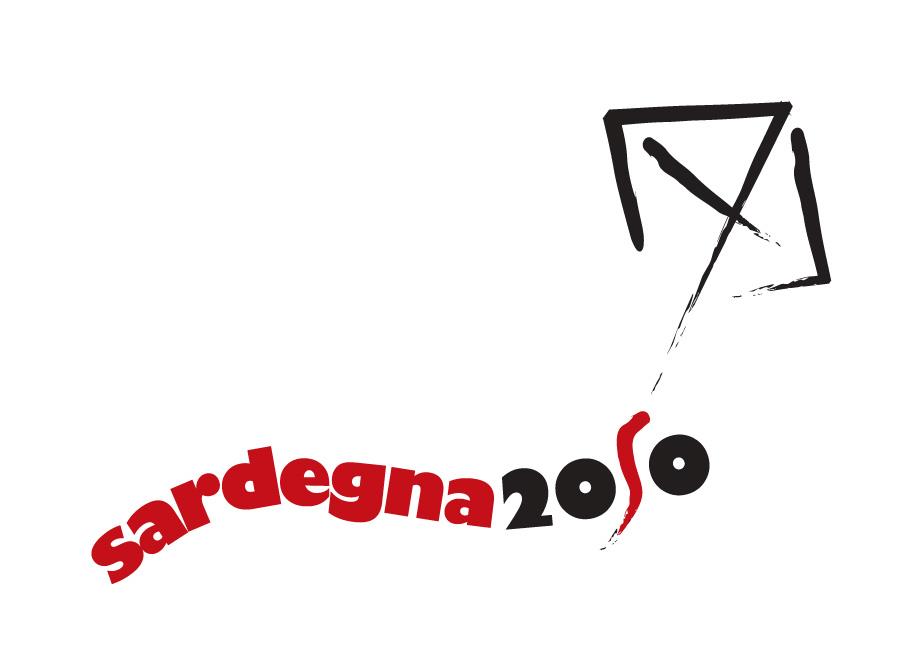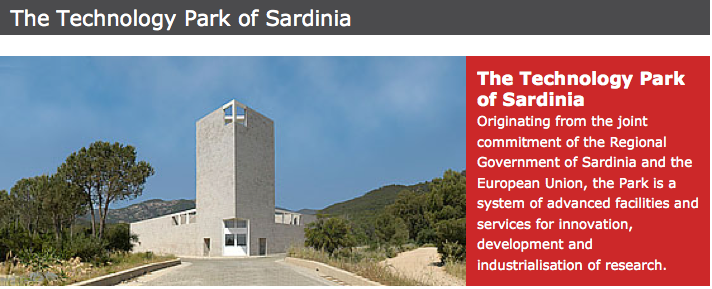Sardinia, in the middle of the Mediterranean sea, is bustling with ideas and passion when it comes to digital innovation. From social and sustainable innovations to the sharing economy, digital school or high-tech medicine, it is worth taking a deeper look at what is going on there and connecting with its players.
I’ve had the opportunity and pleasure to interview 5 of its players in a series dedicated to Digital Innovation in Sardinia.
In this interview, we meet Nicola Pirina, Digital Champion Cagliari & Sardinia, VP Sardegna 2050, innovation strategist and advisor to many start-ups and institutions.
The interview is available in video format below or on YouTube and the full text transcript is below.
Youmna Ovazza : Hello, I’m here today with Nicola Pirina, and we’re going to discuss digital innovation in Sardinia.
Nicola Pirina : Waouh !
YO : Yes ! So maybe I will let you first present yourself, and then I have a few questions for you !
NP : So ciao, thank you for the interview. I’m Nicola, I’m Sardinian, I’m 40, I handle innovation processes, either for public policies, or for companies, this has been my profession for 15 years now.
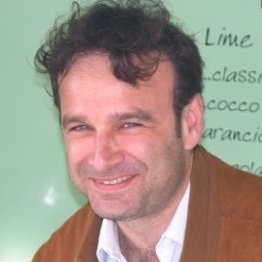 YO : How would you define digital innovation in Sardinia ?
YO : How would you define digital innovation in Sardinia ?
NP : In various ways, in the sense that digital innovation, for many years now, has pervaded company processes as much as public administrations’. It’s also popular and has had a lot of impact on social innovation projects, because a lot of volunteering associations that deal with social innovation have lots of web-based actions. It has also impacted a lot, because Sardinia is very receptive to the FabLabs, digital makers’ movement, the process of acquisition of territorial smart specialization required by the European community, and the same population was very receptive to acquire the digital, still, often when we are missing something it is practical, both for children, or for the likes of me, even for the elderly, if you do not find something that you need, you have a mobile « MindShift, » you look directly into your mobile. This had a positive impact as it solves a lot of problems.
YO : Can you describe a few projects or initiatives that are the proof of this digital innovation, transformation, going on in Sardinia ?
NP : There are many. In terms of public policy, so as to how public administration, small or large size, wanted to impact, let me cite 2 cases, for example to deal with unfinished works, a city in the centre of Sardinia, like Ottana for example, made a crowdfunding campaign and succeeded in this aim.
On a larger, more regional level, they initiated a policy of managerial innovation, that served as much institutions than companies, and they did it in a smart on-line environment, therefore not only training employees but also bringing innovation to the process and the technology they had been using to learn and work in those companies.
Or also for example the Nuoro Chamber of Commerce, who wanted to do Make in Nuoro, a process that has involved more than a third of Sardinia.
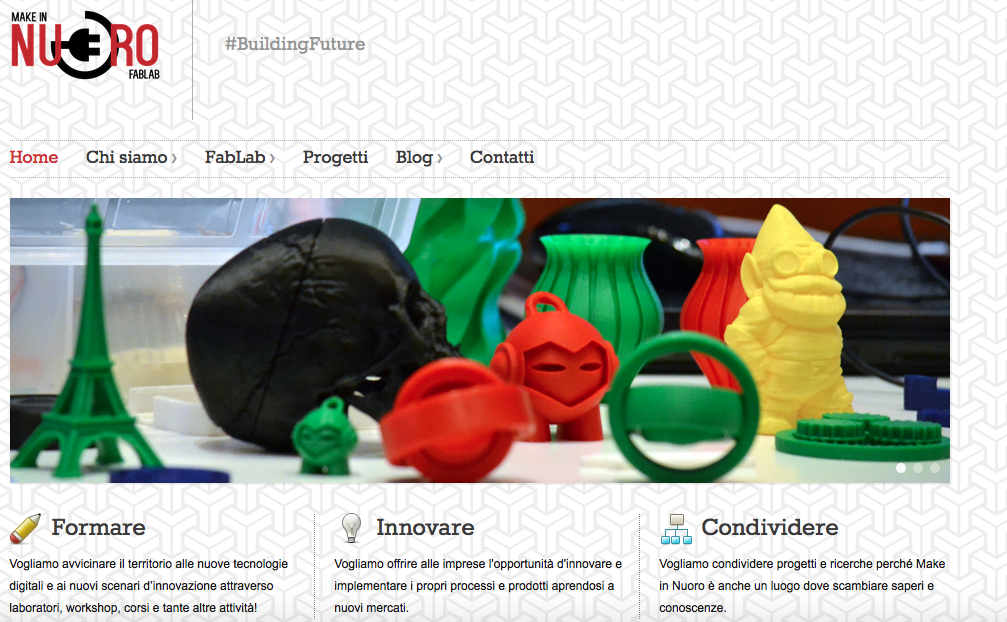 They did data-mining, they did a mapping with the innovation requirements of companies, and they are implementing a great laboratory of digital fabrication that will enable companies of central Sardinia, all based on real economy, working metal, fine ceramics, tissues, understand with this project how much technology is important and can help their fabrication processes without prejudicing the artistic quality, the dexterity, the creativity, for 2 reasons : one, for improving in what they already do, maybe doing it at a lower cost or in less time. Second, for doing things they don’t know how to do yet, or they haven’t tried, using hardware and software to improve their creativity.
They did data-mining, they did a mapping with the innovation requirements of companies, and they are implementing a great laboratory of digital fabrication that will enable companies of central Sardinia, all based on real economy, working metal, fine ceramics, tissues, understand with this project how much technology is important and can help their fabrication processes without prejudicing the artistic quality, the dexterity, the creativity, for 2 reasons : one, for improving in what they already do, maybe doing it at a lower cost or in less time. Second, for doing things they don’t know how to do yet, or they haven’t tried, using hardware and software to improve their creativity.
YO : Who is driving this digital innovation trend in Sardinia ? Is there one actor or is there a multiplicity of actors, how is it working ?
NP : I will answer you this question and the second part of the previous question, let me explain myself better. I was saying that it’s true public administration has done a lot, and I’ve given you proof of it, but it’s true that private companies have done a lot as well. Thus the example of Sardex you’ve already talked to;
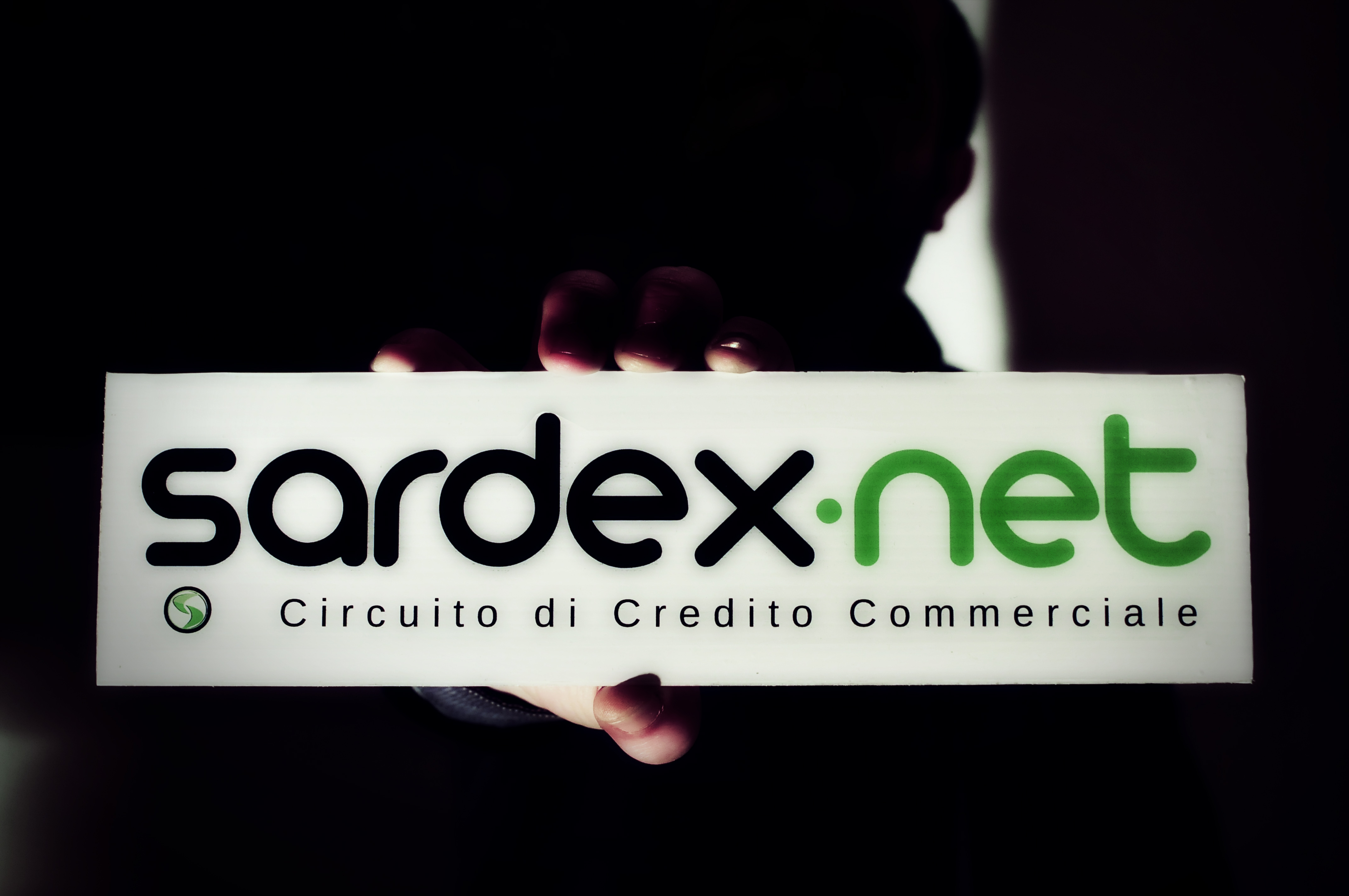 but there are also a lot of small and medium companies, be it in the Internet of objects, in the Internet of everything, in children’s education, in totally web-based assistance on computers, I will recommend you to have a look at the case of Sardu by Davide Costa,
but there are also a lot of small and medium companies, be it in the Internet of objects, in the Internet of everything, in children’s education, in totally web-based assistance on computers, I will recommend you to have a look at the case of Sardu by Davide Costa,
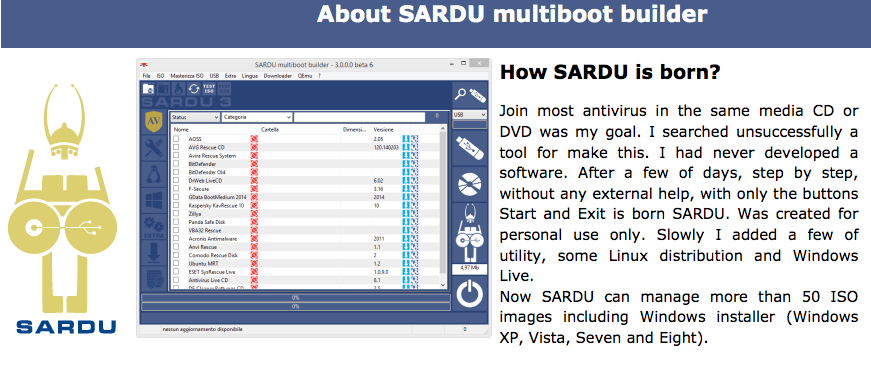 so companies have also done a lot within their own processes and this is why it happened in Sardinia, it’s because the ecoystem is alive. Certainly, there are maybe some persons more visible in the headlines who have spent more energy and invest more be it on a professional level or as volunteers, but it’s true that in Olbia like in Sassari like in Nuoro like in the central villages or in Alghero or in Cagliari, be it for work or as volunteers, the whole network is activating itself to be able to do this. Projects for the elders as for children, for immigrants as for public administration are born out of this.
so companies have also done a lot within their own processes and this is why it happened in Sardinia, it’s because the ecoystem is alive. Certainly, there are maybe some persons more visible in the headlines who have spent more energy and invest more be it on a professional level or as volunteers, but it’s true that in Olbia like in Sassari like in Nuoro like in the central villages or in Alghero or in Cagliari, be it for work or as volunteers, the whole network is activating itself to be able to do this. Projects for the elders as for children, for immigrants as for public administration are born out of this.
So I wouln’t say there is a leadership, it has come naturally in a widespread mode, very collaborative, where people get together to make projects.
YO : But is there a plan behind all this ? Are there objectives on the level of Sardinia, I know there is a Digital Champion now in Italy, is he working with you, or how does this… Do you have any specific objectives or everyone has his own objectives and everyone is collaborating ?
NP : The second option. In the sense that, I am the Digital Champion for Sardegna, later if you want we can talk about it. But I don’t think there is a strategy in this sense on the political level. I don’t know why there isn’t, is it that we don’t know of it or that they have chosen not to go the way of a regional planification on this theme. There maybe a third hypothesis, if it’s the case, I don’t know it. As you know in politics communication is form, not substance.
I think that, for example take my case, I’m part of almost all associations that handle social innovation, I’m Digital Champion and on behalf of the Italian Digital Champion I coordinate the regional network, I’m advising many companies and entities, then maybe, somebody like me succeeds in having a wide view on a regional level of what’s going on.
Then, I cannot afford to have a regional strategy for these things. I’m not a political person, I don’t want to be, I like doing it, be it as a job or on a volunteer basis, because I believe in it, because trivially I want to leave this earth to my sons in a better state than what I found her in, and I think this is the right way, I would like it if they don’t speak of me because of the apartment I would have managed to buy, and that I haven’t bought, but that they talk of the things that we have achieved all together in society.
There isn’t a planification, I think that consultation, dialog, are well used because I don’t see duplication or competition, I don’t see any race to be the head of the class, I see a lot of people socially engaged, Instagrammers are very strong, I see a lot of people engaged on companies’ sides, a lot involved in social innovation, and it seems to me that even without a coordination, they will go in the right direction be it on a social level than on an economic or strategic planification level. « Pro-natural ».
YO : Social innovation is something that seems very strong here in Sardinia, you’re not the first one to mention this. Do you think this is specific to Sardinia, compared to the rest of Italy, or not ? Everybody seems concerned with the social impact of innovation.
NP : I wouldn’t know. Even here, it’s healthy to have competition. I see that a lot of people elsewhere are very active, Dario Carrera from Hub Roma, Alessandro Delli Noci in Lecce, Davide Agazzi in Milano, I don’t think that one single region can be granted the title of being the most active.
Because in fact we’re a generation of people more or less the same age and I see that the ambition is to guide the country and the regions towards something good that has meaning. I don’t know if some have political ambitions, I don’t look at that. For sure, all territories in Sardinia are very active and present, there are a lot of persons investing themselves in all the important subjects, welfare, health, clean tech, public administration, companies, children-related ecosystem, education ecosystem, they are active in almost all fields.
YO : Can you talk about 1 or 2 initiatives that you have seen here, and that you don’t see elsewhere, for example ? Is there such a case ?
NP : One example I have mentioned earlier to you, is about a voluntary association called Sardegna 2050, created to bring together people who wanted to « raise their chin » and look at the longer term rather than looking at their feet, and put together a whole network of skills in the entire Sardinia, of people who in their free time, give back to the territory what good they received from it, because they’re all sons of the Sardinian public education system, and they feel they have to give back.
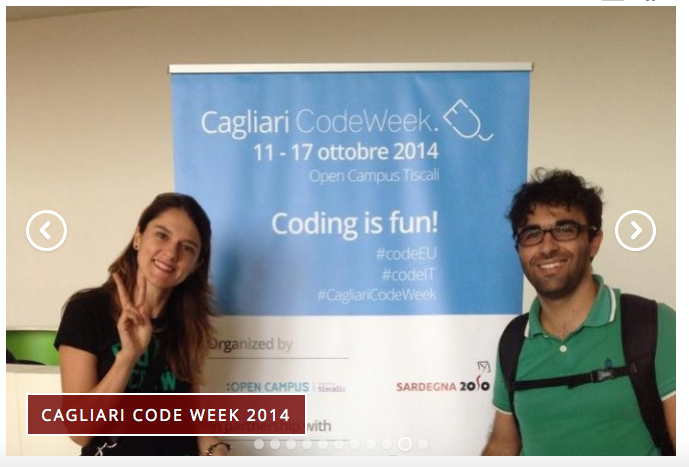 For example, we as Sardegna 2050 together with the city of Ottana, have identified unfinished works, we have worked on them, we’ve done the business plan, the crowdfunding campaign, we collected money, and used the money together with the municipality to help meet those needs.
For example, we as Sardegna 2050 together with the city of Ottana, have identified unfinished works, we have worked on them, we’ve done the business plan, the crowdfunding campaign, we collected money, and used the money together with the municipality to help meet those needs.
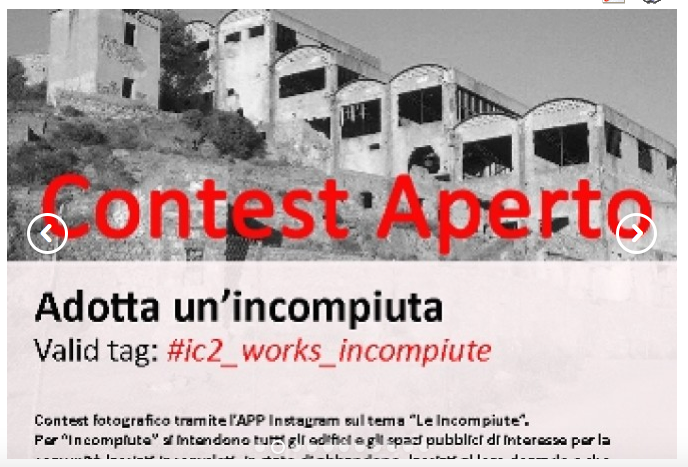 You know well that in Sardinia there has been a very serious flood 2 years ago, also then we did a crowdfunding campaign to rebuild a primary school that had been distroyed. With the help of friends from Italy and from San Francisco, we’ve offered middle schools Bizworld, a program on teaching entrepreneurship ; with the help of other friends we have offered kindergardens a programming course adapted to children, etc.
You know well that in Sardinia there has been a very serious flood 2 years ago, also then we did a crowdfunding campaign to rebuild a primary school that had been distroyed. With the help of friends from Italy and from San Francisco, we’ve offered middle schools Bizworld, a program on teaching entrepreneurship ; with the help of other friends we have offered kindergardens a programming course adapted to children, etc.
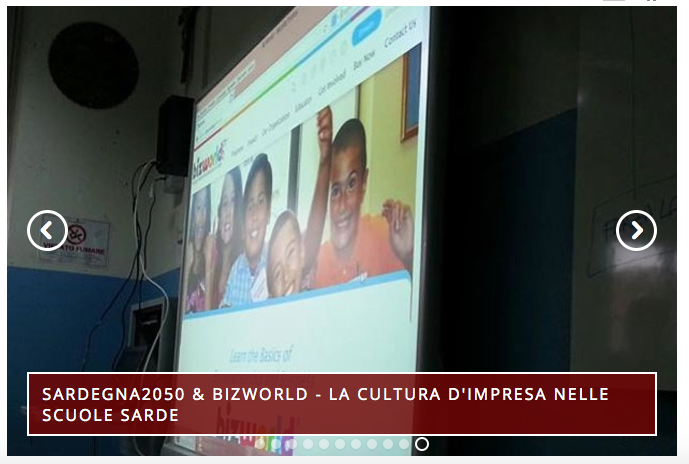 There are really so many initiatives, so many examples, for instance when the flood happened, even there, there were many Italian artists led by a very famous Sardinian artist, the jazz trumpet player Paolo Fresu, they did a great show on the Rai 3 called « Sardegna chiama » (Sardinia is calling), and with them for example, we have done something that had never been done in the world before, a crowdfunding campaign live on TV to support the traditional fundraising, etc. I can give you hundred examples.
There are really so many initiatives, so many examples, for instance when the flood happened, even there, there were many Italian artists led by a very famous Sardinian artist, the jazz trumpet player Paolo Fresu, they did a great show on the Rai 3 called « Sardegna chiama » (Sardinia is calling), and with them for example, we have done something that had never been done in the world before, a crowdfunding campaign live on TV to support the traditional fundraising, etc. I can give you hundred examples.
YO : Who do find are the most motivated to develop digital innovation at large ? Are there specific people, specific associations, or is it everybody, more youngsters, more elders… ?
NS : No, but I certainly see more people my age or younger. For example, the Order of Engineers of Cagliari is very active, with permanent workshops, I recommend talking to Dandy Massa e con Anna Stasi.
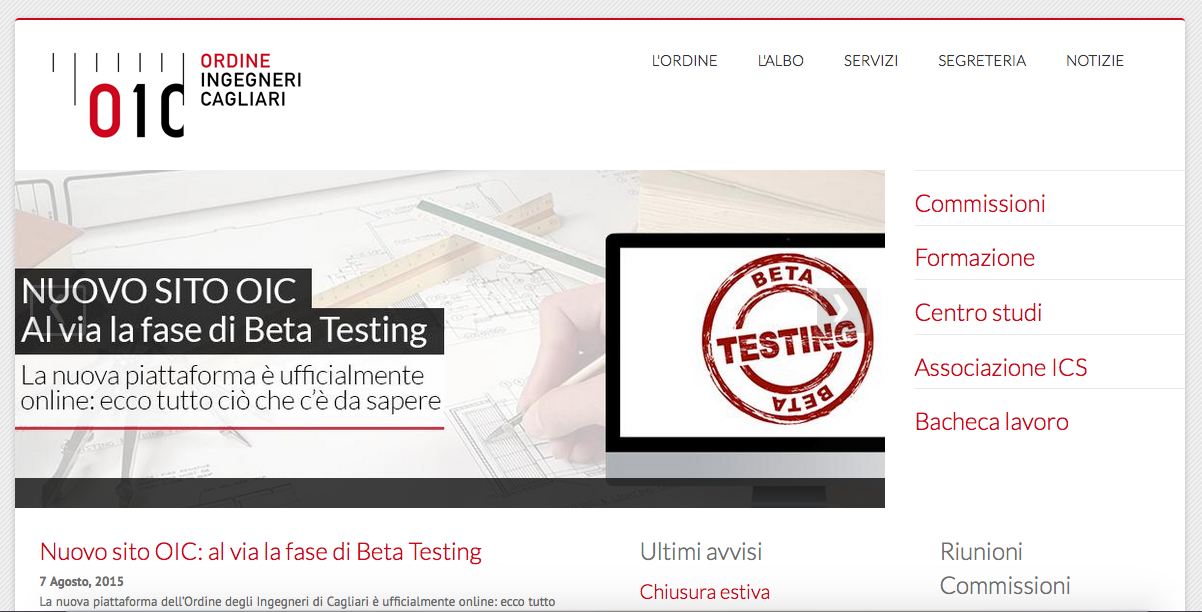
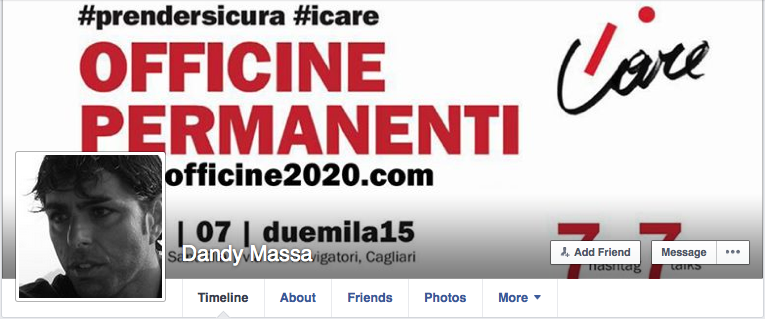 On companies’ side Antonio Solinas is very active, with Abinsula and Lifely.
On companies’ side Antonio Solinas is very active, with Abinsula and Lifely.

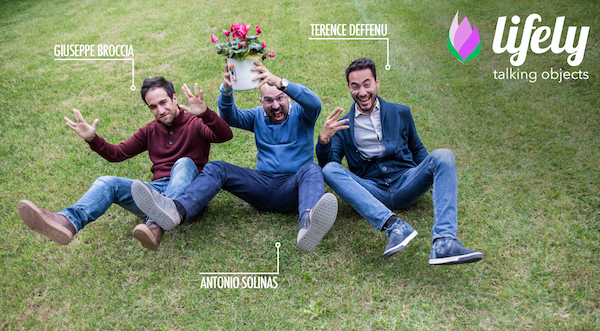 There are so many subjects, almost all of them around « frontiers » issues. We have almost 10 Fab Labs, a dozen incubators not only public but also private,
There are so many subjects, almost all of them around « frontiers » issues. We have almost 10 Fab Labs, a dozen incubators not only public but also private,
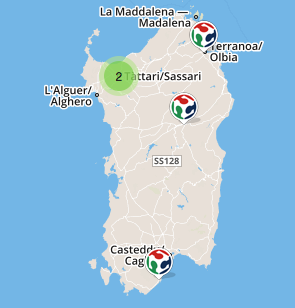
we have 2 technological centres, one in Alghero and one in Pula, very efficient,
there’s the CRS4 center of research, there are also relevant actors like Tiscali, there’s a an agency dedicated to this on the regional level, but above all, on the territory level itself, be it professionals or volunteers it’s the persons investing themselves in these subjects that made them spread.
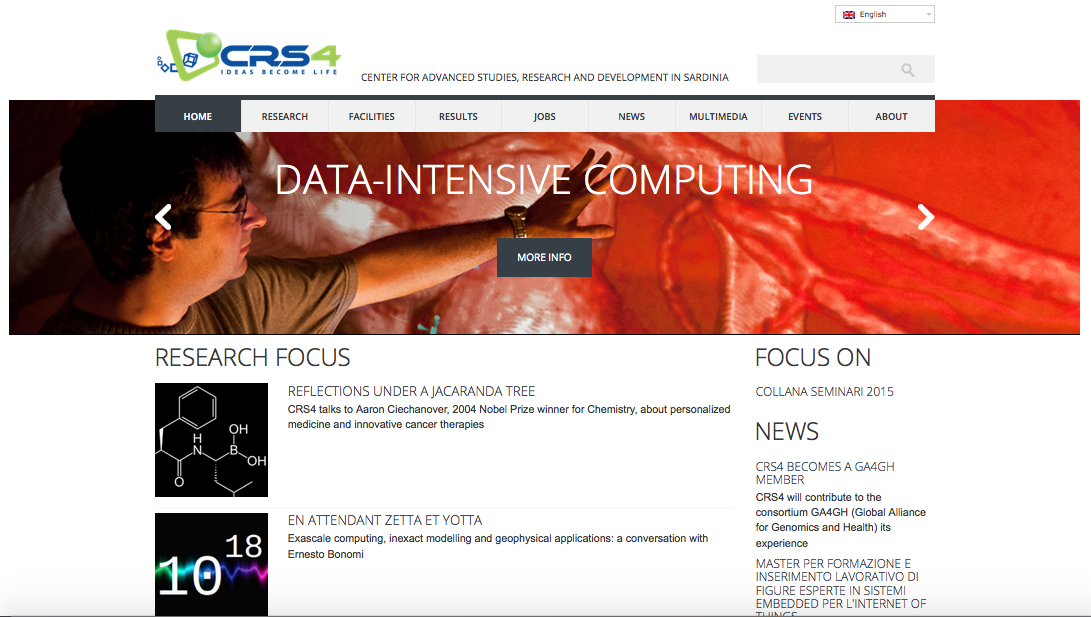 According to me, this is what is happening in Sardinia, before anywhere else, friendships are born that permit the use of the intelligence existing in the territory, that normally remains pulverized, separated, something happened that allowed for this, like when we were young and the thermometer fell down, the mercury spreaded but then eventually the mercury gathered back and coagulated again.
According to me, this is what is happening in Sardinia, before anywhere else, friendships are born that permit the use of the intelligence existing in the territory, that normally remains pulverized, separated, something happened that allowed for this, like when we were young and the thermometer fell down, the mercury spreaded but then eventually the mercury gathered back and coagulated again.
This has happened here in Sardinia with innovation, social, technological or in public or private sectors. It has triggered something that made all the intelligence available start to converse and do things together. This is what happened.
YO : Are you trying to build partnerships with other countries, around the Mediterranean for example, or elsewhere, or not necessarily ? Or are you doing all this by your own ?
NP : Dialog, collaboration are essential. In reality in Sardinia we talk to everybody, from Sicilia to Vallee d’Aosta. In Vallee d’Aosta, for example, they now have Vallee d’Aosta 2050. We really converse with all Italian regions.
YO : And abroad ?
NP : Abroad, we have a lot of contacts, from Germany to Spain to England, Dublin… and we value them well for 2 reasons : the first one is, as in the case of Digipay, of Sardex, there is the awareness that the network makes sense if you act on it ; if you build a network only for the sake of building one, if it remains static, it is useless. So they want to get together for common and practical projects in a way that’s working very well.
The second one is related to the importance of studying/researching well together, and this has worked well in Sardinia. If I have a line of research or study, or a bibliography, or site links which is even more important, and I talk about it with you, with Roberto, with Alessandra, you will share yours with me and give me your opinion, and I will do as much. If you do this with a European multiplier, you’ll have the most important thing that is the ability to see, foresight, first hand and not via studies by consulting firms, because you do it with the persons that live and study on the territory, the companies and the public administration that are generating trends. Paradoxically the most inflexible is the territory itself, that we use to innovate.
YO : What are the biggest challenges that you’re facing ? Not you personally, but to develop all these innovations ?
NP : I would like Sardinia to become a leader because it can be a privileged playground, a « proof » ground, for pilot and test projects at the intersection of major global challenges. Let me explain myself : we know well that Green / environmental challenges are huge : if you had houses that produce the energy they consume, that manage to collect more water than they consume, if you had a widespread electric mobility, and so on, if you had houses built in a certain way… this remains a problem. Sardinia can be a candidate to work on these issues because there’s technology here, there are universities, and there’s sensitiveness, there’s awareness for these issues…
Same thing for other major worldwide challenges : one problem will be the aging of populations, another will be preserving water and food, another will be the network’s democracy, the democracy of instruments governed by the network… I would like Sardinia to become a candidate to help solve these challenges.
YO : You never speak about money, I mean, euros ! Financing is not a problem ?
NP : No. Honestly speaking, I believe that in Sardinia as in the rest of Italy or Europe, there’s much more money than ideas or persons who want to make them happen. This is why social innovation processes are important, because they aim at giving people the right instruments, the right reading key. Money for change is not missing. Then you’re talking to me and in reality money is only an instrument to me, not the end. If many thought this way things would be a bit better.
YO : Final question : what frustrates you the most, you personally, in whatever that you’re trying to achieve in terms of digital innovation ?
NP : Sometimes I fear that countries’ system, not only in Italy, because it’s obvious things are not going well everywhere, not only in Greece, they don’t work in Italy, in Germany…
YO : in France also !
NP : It is clear to everybody that things are not working well. The real concern, however, that no one has denied, is that unfortunately it seems that the current ruling systems in our countries or in Europe have more antibodies than we have intelligence to improve them. I would like to be proven wrong, because it’s preventing us from moving forward.
YO : Do you want to add something ?
NP : Full speed ahead ! Avanti tutta!
YO : Thank you !

